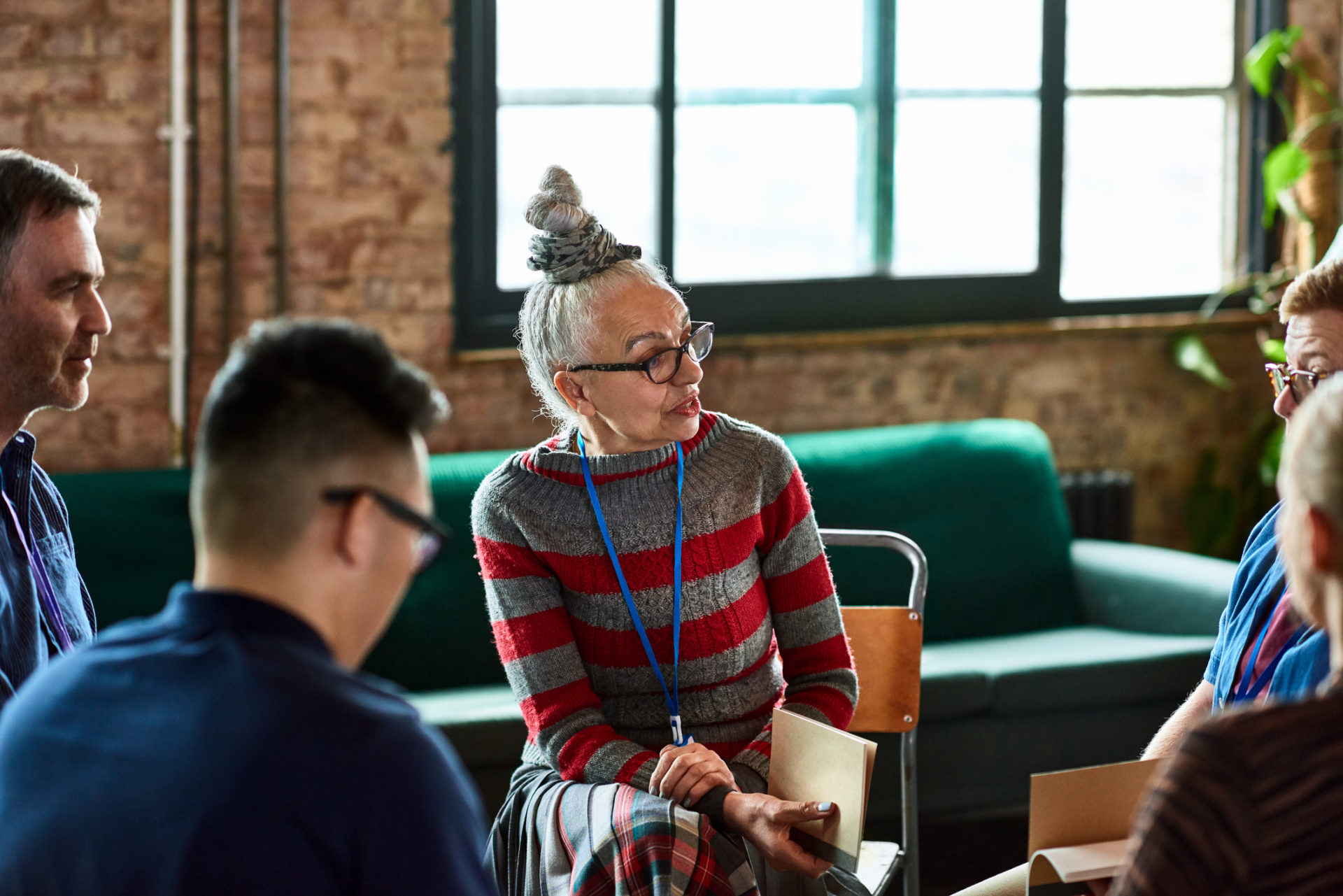For #BuildItBackBetter, NationSwell asked some of our nation’s most celebrated purpose-driven leaders how they’d build a society that is more equitable and resilient than the one we had before COVID-19. We have compiled and lightly edited their answers.
This article is part of the #BuildItBackBetter track “The Relational Era: Building a Culture of Connection, Bridging and Belonging” — presented in partnership with Einhorn Collaborative.
I met J. R. Doyle more than 25 years ago in a food bank in the Arkansas Ozarks. A white, retired high school principal and some-time hog farmer, Doyle was looking for a reason to get up in the morning when he heard a radio ad for the Delta Service Corps.
“I just called the number, not thinking anything would happen,” he said. “And about a week later I got an application. I sent it in, and pretty soon they told me to go to West Memphis for an interview. I was hired.”
This was back before AmeriCorps, back when the Commission for National and Community Service’s biggest investment was in a new program called City Year. Creative ideas for new service models were hopping, and the Delta Service Corps was one.
The Corps’ animating idea? It was intentionally intergenerational. Older and younger members worked side by side in Arkansas, Louisiana, and Mississippi — staffing food banks, delivering meals, tutoring preschoolers and teaching classes at senior centers.
Doyle loved it, even if it was quite a bit different than he expected.
“I’ve had to learn some new things,” he told me. “How to get along with different kinds of people, people who’ve had a lot of bad luck, who poverty’s really dealt a bad hand….”
“We had a guy from New Orleans, who died a few weeks back,” Doyle said about his friend Don Harding. “He had a heart attack, and it just devastated me… I had met him in Little Rock, in training, and we spent a couple of weeks together. Just an outstanding human being, and he was trying to make a difference in the New Orleans area with the drug problem. We lost a good man when we lost Don Harding.”
The experience of his friendship with Harding, a Black man, opened Doyle’s eyes in ways that 40 years in largely segregated public education hadn’t. Old and young, Black and white serving together, bridging divides, forging bonds.
The Delta Service Corps and J. R. Doyle are long gone, and I’m afraid the lessons they taught us have all but disappeared with them. For all the progress that’s been made with service in this country over the past 30 years — witness City Year today — we still have no formal, widely available intergenerational service corps.
Sure, there are many programs mobilizing older people to serve younger ones. And even more efforts engaging younger people to reach out to community elders.
But the notion of joint service? It’s mostly happening informally. The aging field has a phrase for locations where older people tend to congregate for companionship — Naturally Occurring Retirement Communities, or NORCs. I see a lot of NOICs in the context of service efforts — Naturally Occurring Intergenerational Connections. Not the most poetic turn of phrase, but the connections themselves are enormously promising.
With five generations in the workplace at once, and more people over 60 than under 18, the time is ripe to put real muscle behind new ways to bring older and younger generations together. We have a powerful need for their combined human and social capital, and an urgent need for the generational and racial understanding that would result.
“James lived a very full and productive life,” Doyle’s obituary noted in 2012. “He was a member of the Arkansas Retired Teachers Association, a former Arkansas director of the Delta Service Corps and was a U.S. Air Force veteran, having served in the Korean War.” It concludes by adding, “He was described by his family as having a colorful personality,” as having “never met a stranger.”
Intergenerational service helped see to that for J.R. Doyle. It can do the same for so many more of us now.
Marc Freedman is the CEO of Encore.org and author of How to Live Forever: The Enduring Power of Connecting the Generations, coming in paperback on Dec. 1.

 "
"